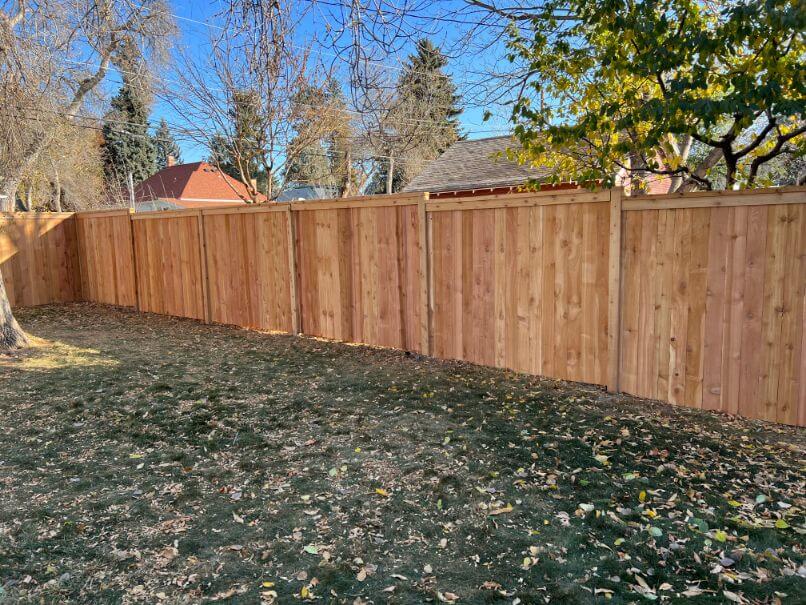All Categories
Featured

Picking the appropriate fencing for both privacy and noise decrease is a vital factor to consider for numerous house owners, especially if you stay in an active area or near high-traffic roads. The products you pick can make a considerable distinction in how well the fencing serves its purpose. Allow's discover some of the very best secure fencing materials for enhancing personal privacy and shutting out sound.
- Timber Fencing. Wood fencings are a timeless choice for privacy and sound reduction. The all-natural density of wood enables it to absorb sound properly, making it a solid option for moistening outside noises. A strong wood fencing, especially one with very closely spaced slats or no spaces, provides significant soundproofing. Wood additionally provides a standard, rustic visual that mixes well with most landscapes.

Finest for: Home owners seeking a natural, ageless look and effective noise obstacle. Upkeep: Wood fencings call for routine maintenance to avoid issues like splintering, rot, or bending. Normal discoloration or sealing is vital to secure the wood from the elements. Noise Decrease: A solid, no-gap timber fencing can block a significant quantity of sound, especially from close-by web traffic or building and construction. 2. Vinyl Fencing. Plastic fences are a contemporary option to traditional wood and provide the benefit of reduced maintenance. Plastic fencings can be installed as solid panels that are fantastic for both privacy and sound decrease. While plastic doesn't soak up audio as well as timber, it still offers an efficient , especially when mounted with tight-fitting panels that prevent spaces.
Finest for: House owners trying to find a budget-friendly, low-maintenance secure fencing alternative with a modern appearance. Maintenance: Plastic fencings need marginal maintenance. Merely wash them periodically to get rid of dirt or discolorations, and they'll remain looking fresh for years. Noise Decrease: Solid plastic fences can minimize sound, though not as successfully as wood. For much better noise-blocking, select thicker, high-density vinyl panels. 3. Composite Fence. Compound fences, made from a mix of wood fibers and plastic, offer the most effective of both globes: the all-natural look of wood incorporated with the durability and reduced maintenance of plastic. These fences are thick, which helps to soak up audio while also offering a strong privacy obstacle. Compound fencings can also be constructed with limited panels to better lower sound.
Ideal for: House owners who desire the appearance of wood with less maintenance and enhanced toughness. Maintenance: Composite fencings are extremely low-maintenance and only call for periodic cleansing to remove debris. Noise Decrease: Compound fences are quite reliable at sound decrease due to their thickness. They do in a similar way to wood fences and are an excellent selection for those seeking both privacy and soundproofing. 4. Stone or Block Walls. Rock or brick fences supply premium personal privacy and noise decrease. The strong, heavy building of stone or block walls makes them exceptionally effective at blocking sound, specifically when they are constructed with no spaces.
Best for: House owners that prioritize noise, personal privacy, and security decrease over aesthetic appeals or price. Maintenance: Rock or block wall surfaces are sturdy and require very little upkeep. However, it is very important to look for any kind of splits or damage with time. Noise Reduction: Rock or block offers the very best noise reduction amongst all materials. They are extremely effective at blocking out both high and low-frequency noise. 5. Steel Secure Fencing with Soundproofing. While steel fencings, such as aluminum or steel, are normally not as efficient for noise reduction by themselves, they can be improved with soundproofing products. Adding acoustic panels or soundproofing foam can turn a metal fence right into an excellent audio obstacle. These fencings offer a smooth, modern look, and the included soundproofing aspects can offer considerable noise decrease.
Best for: Property owners who prefer a contemporary visual and want to purchase soundproofing enhancements. Maintenance: Steel fencings call for minimal upkeep but may require corrosion prevention in certain climates. Noise Decrease: When enhanced with soundproofing products, metal fences can be reliable at obstructing noise. Without these additions, nevertheless, steel fencings often tend to be less efficient at sound reduction compared to denser materials like wood or block. 6. Greenery or Bush Fence. For those that prefer an all-natural solution, thick bushes or shrubbery can work as a noise-dampening fence. While not a standard secure fencing product, thick plants can absorb sound and create a natural barrier against noise. While they may not obstruct noise as effectively as a solid wall, they can help in reducing ambient sound and add a layer of privacy.
Ideal for: Homeowners looking for a more environmentally friendly and aesthetically pleasing alternative. Maintenance: Plant fencings require normal trimming and care to maintain them thick and healthy and balanced. Noise Reduction: While not as effective as solid fences, thick plants can help in reducing noise by taking in noise, particularly when expanded largely. Verdict. When choosing a fence for personal privacy and sound decrease, products like wood, plastic, composite, and rock are among the best choices. For the highest possible level of personal privacy and noise brick, reduction or rock wall surfaces are the most efficient selection.
Latest Posts
Recognizing Roofing Warranties: What Homeowners Must Know
Published May 20, 25
1 min read
Enjoy the Flavors of Yesterday's Tavern
Published May 19, 25
1 min read
Discover Top Vision Solutions in Panama City, FL – Eye Center South Specialists
Published May 18, 25
1 min read